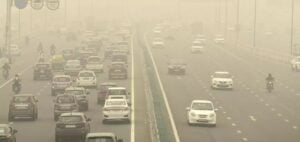Cutting emissions by 68% by 2050 is the target to be unveiled at next month’s COP28 summit. This will oblige signatory countries to reduce emissions from the use of air conditioners by 68%. However, it is not known how many countries will adhere to this commitment. We also don’t know whether heavyweights such as China and India will be taking part. It’s worth noting that demand for air conditioning in these countries is growing fast.
The weight of air-conditioning emissions
Air conditioning currently accounts for over 7% of global greenhouse gas emissions. They contribute to emissions because of the electricity needed to power technologies such as air conditioners and fans. What’s more, air conditioning and refrigeration generally rely on hydrofluorocarbons. They are short-lived but powerful pollutants. They can have greater global warming effects than carbon dioxide.
The challenge of air conditioning growth
The UN estimates that around 3.6 billion air conditioners are in use worldwide. Yet their number is set to soar, with global demand for energy for air conditioning tripling by 2050. “Without policy intervention, direct and indirect emissions from air conditioning and refrigeration are projected to rise 90% above 2017 levels by 2050,” warned a UN report in 2020.
The Global Cooling Pledge
The “Global Cooling Pledge” commits signatories to work towards “reducing air conditioning emissions in all sectors by at least 68% worldwide from 2022 levels by 2050”. It recognizes the growing number of heat-related deaths worldwide, and the fact that nearly three billion people currently have inefficient air conditioning options. Similarly, it suggests wider access by reducing emissions from the sector through tools such as more efficient air conditioners, buildings using passive cooling and a reduction in the most potent hydrofluorocarbons.
The next steps for the climate
Negotiators will meet in Dubai from November 30 for climate talks that are expected to focus on the future of fossil fuels, a call for greater use of renewable energies, and funding for adaptation and transition in developing regions. The need for immediate action to reduce air conditioning emissions and mitigate the effects of global warming cannot be underestimated.
The commitment to air conditioning announced at the COP28 summit is a crucial step forward in the fight against greenhouse gas emissions. The challenges posed by the growth of air conditioning and its impact on the environment are undeniable, but measures such as the Global Cooling Pledge show that solutions are possible. The upcoming summit in Dubai will provide an opportunity to discuss further measures to preserve our planet.
In short, reducing air-conditioning emissions is a key issue for the future of our planet, and this commitment could well be the first step towards a cooler, more sustainable future.





















